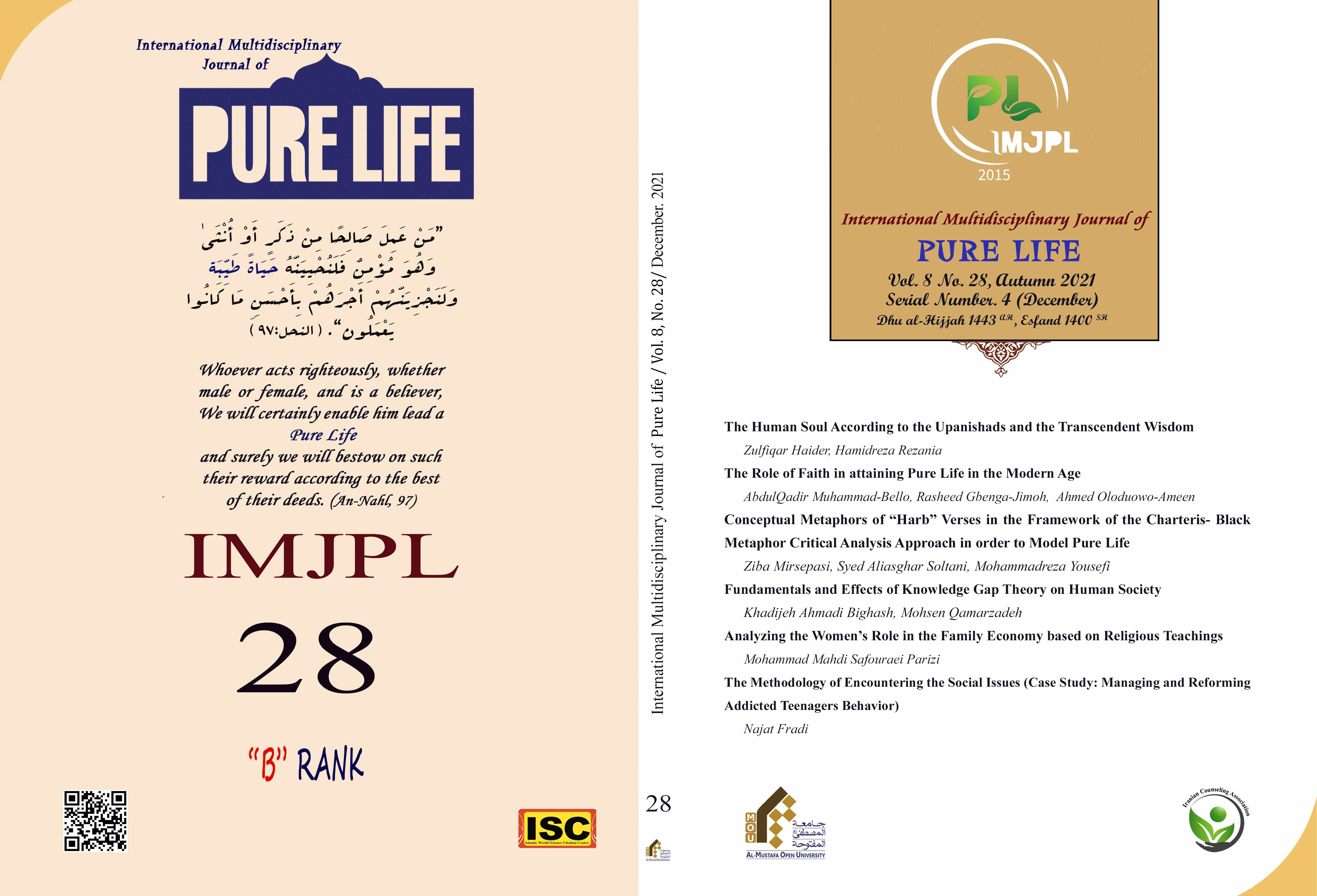Document Type : ORIGINAL RESEARCH PAPER
Authors
1 Lecturer of Academic Departments, Faculty of Humanities, al-Hasanain International Institute, Punjab, Pakistan (Corresponding Author)
2 PhD in Comparative Philosophy, Department of Philosophy and Theology, Faculty of Theology and Studies, University of Qom, Qom, Iran
Abstract
SUBJECT AND OBJECTIVES: The study of the human soul was considered by philosophers since ancient times and eastern philosophers especially Indian had believed that the human soul is eternal and for thousands of years transmigrates into various bodies and eventually it would disappear in Brahma’s essence. The most important school of Upanishadic Indian philosophy that is called Vidanta has this theory about the soul. Another school under study is the transcendent wisdom of Sadr al-Muta'allehin. With this description, Are the theories of both philosophical schools about the soul, the same or different? If there are differences, how should the theories of the Upanishads be criticized on the basis of the Transcendent Wisdom?
METHOD AND FINDING: This article is a comparative one and is a new work in this ground, and the main sources of this research are the four journeys of the Transcenddent Wisdom of Mulla Sadra and The Sirri-Akbar of Dara Shikoh. The Upanishads is the first and ancient book of Indian philosophy explains; the soul is present in all parts of the human body and all body powers are manifestations of the soul, and the soul has unity with its all powers. The same claim is made by Transcendent Wisdom of Sadr al-Mute'allihin in Islamic philosophy. He says: The soul in its unity, is the whole of the powers and is present in all body.
CONCLUSION: This article will compare the theories of two schools and the major ideas which will be discussed are; The Definition of the Soul, its Proofs, The Immateriality of the Soul, The Relationship between the Soul and the Body and its Powers, The Eternity and Creation of the Soul, The Immortality and the Reincarnation of the Soul.
Keywords
Main Subjects
- Benaris, Raj (1926). Shobirt Lal. Upanishad Magazine. Aftab Press.
- Benaris, Raj (1927). Shobirt Lal. Upanishad Magazine. Aftab Press.
- Dara Shikoh, Muhammad (1975). Sirre Akbar. Uttar Pradesh (Lucknow): Bhuvan Vani Trust.
- Ibn Manzur, Muhammad ibn Mukarram (2000). Lisan al-Arab. Beirut: Dar Sader.
- Misbah Yazdi, Mohammad Taqi (2000). Commantory of Eighth Volume of the Transcendent Wisdom. Qom: Imam Khomainy Educational institution.
- Sadr al-Mute'allihin Shirazi, Sadr al-Din Muhammad ibn Ibrahim (2012). Hikmat al'Arshieh. Tehran: Sadra Islamic Philosophy Foundation.
- Sadr al-Mute'allihin Shirazi, Sadr al-Din Muhammad ibn Ibrahim (2004). Al-Hikmat al-Muta'aliyyah fi'l Asfar al-'Aqliyyat al-Arba'ah (Transcendent Philosophy Concerning the Four Intellectual Journeys). Tehran: Sadra Islamic Philosophy Foundation.
- Sadr al-Mute'allihin Shirazi, Sadr al-Din Muhammad ibn Ibrahim (2002). al-Mabda’ wa’l-Ma‘ad fi al-Hikmat al-Muta‘aliyah. Tehran: Sadra Islamic Philosophy Foundation.
- Sadr al-Mute'allihin Shirazi, Sadr al-Din Muhammad ibn Ibrahim (2002). Sih Asl (Treatise on Three Principles). Tehran: Sadra Islamic Philosophy Foundation.
- Shankara (1983). Brahadaranaka Upanishad. Translated by Swami Gambhirananda. Kolkata: The Modern art.
- Shankara (2004). Vedanta Sutra. Translated by George Montana: Kessinger Publishing.
- Shankara (1957). Eight Upanishads. Translated by Swami Gambhirananda. Kolkata: Sharada Press.

